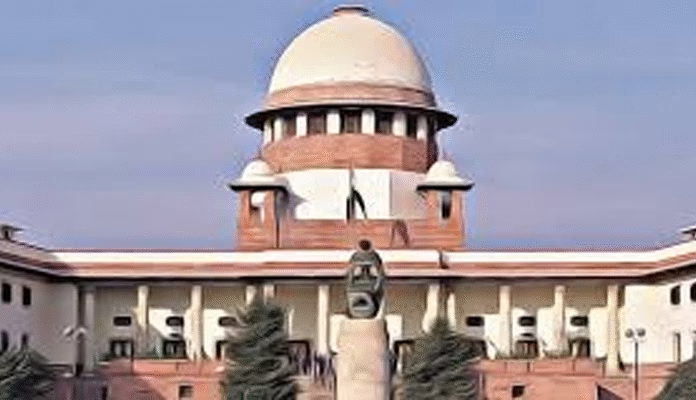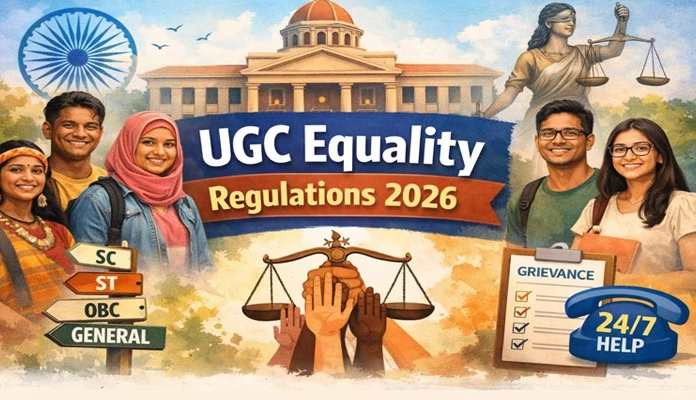
New Delhi: The Supreme Court (SC) witnessed an unprecedented scene on Monday when a 72-year-old advocate, Rakesh Kishore, attempted to hurl a shoe at Chief Justice of India (CJI) B.R. Gavai inside Court No. 1. Though the shoe didn’t reach the bench and no one was injured, the dramatic act stunned the legal fraternity and immediately triggered disciplinary action.
The Flashpoint: A Faith and a Remark
Kishore’s outburst was not spontaneous. The senior advocate said he had been deeply disturbed since September 16, when CJI Gavai refused to entertain his plea seeking restoration of a damaged idol of Lord Vishnu in Khajuraho. During that hearing, the CJI had reportedly remarked, “Go and ask the deity itself to do something now. You say you are a staunch devotee of Lord Vishnu, so go and pray now.”
The comment — meant to indicate that such matters fall under the jurisdiction of the Archaeological Survey of India — drew strong criticism on social media, with many calling it disrespectful to Hindu sentiments. Though the CJI later clarified that he never intended to hurt any faith, Kishore said he could not reconcile with the remark.
“I lost sleep from that day. He not only refused the prayer but mocked Lord Vishnu,” Kishore said after the incident, insisting that he acted out of anguish, not anger.
#WATCH | Delhi: Suspended Advocate Rakesh Kishore, who attempted to hurl an object at CJI BR Gavai, says, “…I was hurt…I was not inebriated, this was my reaction to his action…I am not fearful. I don’t regret what happened.”
“A PIL was filed in the Court of CJI on 16th… pic.twitter.com/6h4S47NxMd
— ANI (@ANI) October 7, 2025
A Lawyer Driven by Faith and Frustration
Registered with the Supreme Court Bar Association since 2009, Kishore holds a Ph.D. in medical entomology from Banaras Hindu University and had previously worked on health projects with the World Health Organization. By his own account, he is a devout Hindu and felt personally wronged by what he described as “judicial insensitivity” toward religion.
Kishore said he was further provoked by the CJI’s recent comments abroad, where he had criticized “bulldozer justice” and cautioned state authorities against demolishing alleged illegal structures without due process. Coming from Bareilly, where anti-encroachment drives are underway, Kishore said he feared the judiciary might intervene in those operations.
“If the Yogi government is taking lawful steps, no one should interfere,” he said, explaining how his resentment built up over time.
The Courtroom Chaos
When the bench assembled after the Dussehra break, Kishore stood up and hurled his shoe toward the dais. Security personnel quickly restrained him before any harm could occur. The CJI remained composed, and the proceedings resumed shortly afterward.
Kishore was escorted out of the courtroom by police, questioned, and later released. He said he was prepared for arrest and did not regret his actions. “They checked my phone, took my call details, and let me go. I was ready to go to jail. I only regret that my family doesn’t understand why I did it,” he said.
Legal Fraternity Reacts with Outrage
The Bar Council of India (BCI) and the Supreme Court Bar Association condemned the act, calling it a grave breach of courtroom decorum and professional ethics. The BCI ordered the immediate suspension of Kishore’s licence and initiated disciplinary proceedings against him.
Senior advocates across the spectrum termed the act “unacceptable” and “dangerous to judicial sanctity,” stressing that dissent or disagreement must never cross the boundaries of respect for the court.
PM Modi and Other Leaders Condemn Attack on CJI
Prime Minister Narendra Modi on Monday spoke to Chief Justice of India Justice B.R. Gavai following the attempted attack inside the Supreme Court.
In a social media post, the Prime Minister said that the attack on Justice Gavai “has angered every Indian.” He added, “There is no place for such reprehensible acts in our society. This is utterly condemnable.”
The Prime Minister also appreciated the composure shown by the Chief Justice during the incident, saying it “highlights his deep commitment to the values of justice and the spirit of the Indian Constitution.”
Several political leaders, including members of the Opposition, also condemned the incident and called for stronger security protocols within the Supreme Court premises to ensure the safety of judges.
A Deeper Undercurrent
Beyond the courtroom drama lies a deeper reflection on the growing tension between faith, free speech, and judicial restraint. The episode underscores how sensitive religious issues can quickly escalate when emotions override reason — and how fragile the balance between belief and law can become in a polarized environment.
Kishore’s action may have been born of devotion, but it has also exposed the perils of conflating personal faith with judicial outcomes. While he insists he acted for dharma, the justice system views it as a serious breach of order — one that challenges not only decorum but the very sanctity of the court.
In essence: What began as a plea to restore a temple idol has now become a national talking point — about faith, restraint, and the sanctity of India’s highest judicial institution.




